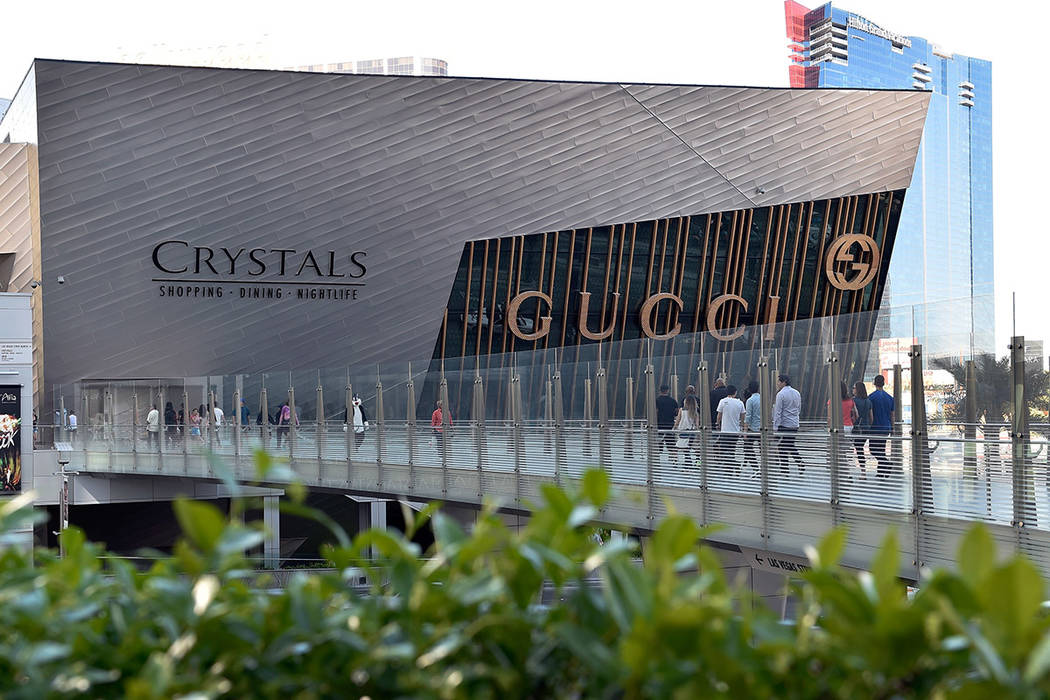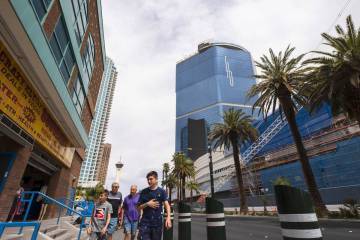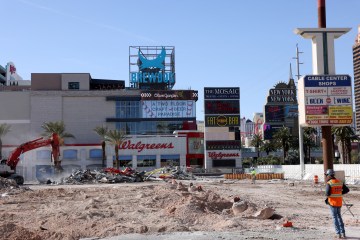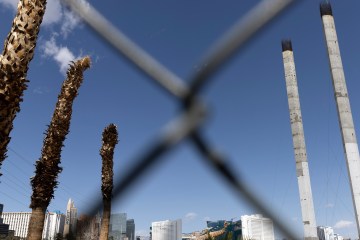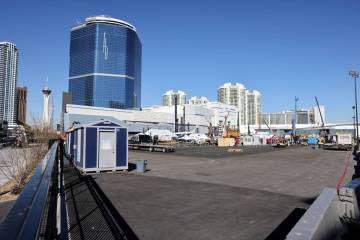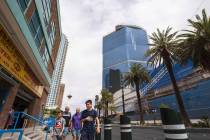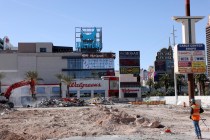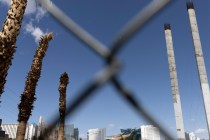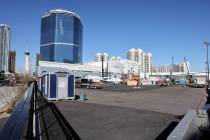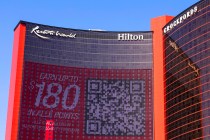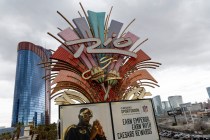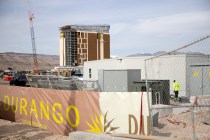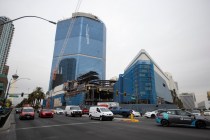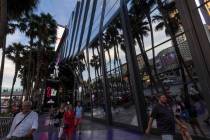Relationship with Dubai renewed with deal by MGM Resorts subsidiary
Spanning 26 acres of beachfront property, the latest project by a subsidiary of MGM Resorts International won’t have slot machines or poker tables but will boast 1,000 rooms, a “dazzling” theater and a snorkeling area.
It will also be in Dubai — a Middle Eastern city the company knows all too well.
Dubai’s Wasl Asset Management Group has brought in MGM Hospitality, a subsidiary of the casino operator, to help with development of a 2 million-square-foot resort on Jumeirah Beach and to operate it when finished, the companies announced Monday.
The project will feature an MGM hotel, MGM Residences and even a Bellagio hotel, the statement said, adding that the companies “presented” the project to Sheikh Mohammed bin Rashid Al Maktoum, prime minister of the United Arab Emirates and ruler of Dubai. (And who, it seems, essentially controls Wasl: He launched a real estate company in 2007 that later formed Wasl to manage and grow its assets.)
Las Vegas Boulevard is packed with supersized real estate projects, and so is Dubai, home to several skyscrapers including Burj Khalifa, the world’s tallest at more than 2,700 feet, as well as man-made, palm-tree-shaped archipelagos off the coast.
The emirate also wagered heavily on the Strip during the boom years last decade, investing in MGM’s CityCenter project.
And both sides came close to losing big on it.
In fall 2004, as the real estate bubble was inflating, MGM Resorts predecessor MGM Mirage announced plans to build a multibillion-dollar, 66-acre “urban metropolis” called Project CityCenter. The company labeled it “the most significant privately funded project in the United States at this time.”
In summer 2007, as the economy was softening, MGM said that Dubai World, a government-controlled holding company, would put $2.7 billion into the project for 50 percent ownership, and buy as much as $2.4 billion worth of MGM stock.
But the economy worsened, and CityCenter spiraled into a mass of problems, including a ballooning budget. A court battle developed over construction defects in the Harmon hotel, which never opened and was dismantled. And tragically, six construction workers died while building CityCenter.
The owners fought as well, as Dubai World sued MGM over the project and, according to Time magazine, stopped putting money into it.
The project teetered toward bankruptcy, and the Review-Journal reported that Wall Street was speculating that MGM Mirage itself might file for Chapter 11.
MGM and Dubai World ended their “5-week-old public feud” in April 2009 by agreeing to fully fund and finish the $8.5 billion project, the RJ reported, ending speculation that CityCenter would end up in bankruptcy court. “I don’t think I can overstate the significance of this event,” MGM chief executive Jim Murren said at the time.
CityCenter opened in December 2009, when the economy was in the trash heap: The valley’s unemployment rate was 12.7 percent at the time, having more than tripled since MGM first announced the megaproject.
Eventually, the economy slowly began to heal. Visitor counts are hitting record levels in Las Vegas, and CityCenter is now a gleaming cluster of hotel and condo towers — Aria, Vdara, Mandarin Oriental and Veer Towers — with the hyper-luxury Shops at Crystals, which MGM and Dubai sold last year for $1.1 billion, out front.
CityCenter may not be an “urban metropolis,” but it’s certainly not what it used to be: an urban mess.
Contact Eli Segall at esegall@reviewjournal.com or 702-383-0342. Follow @eli_segall on Twitter.



